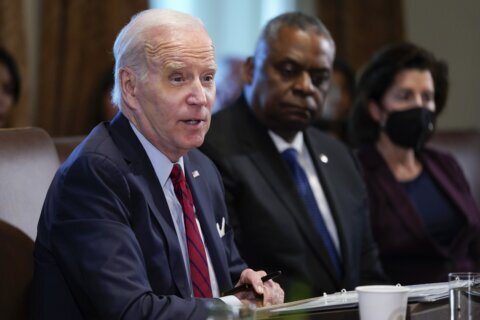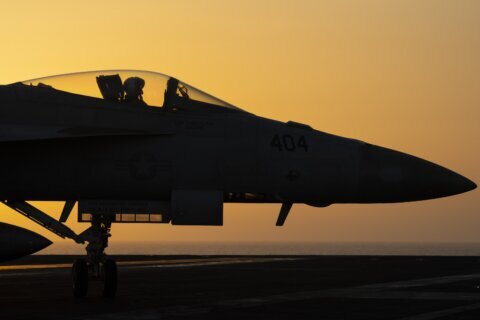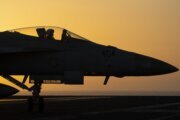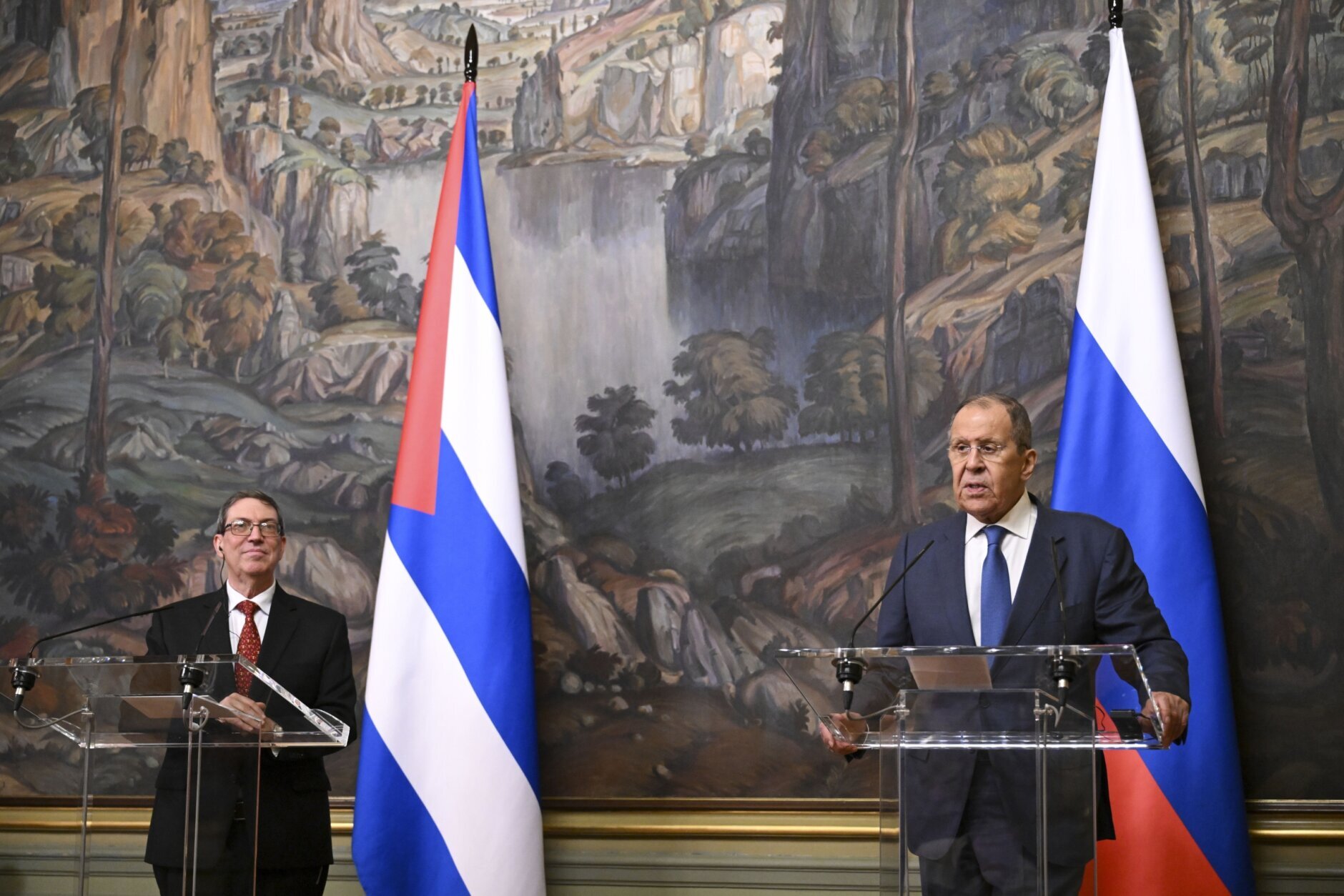
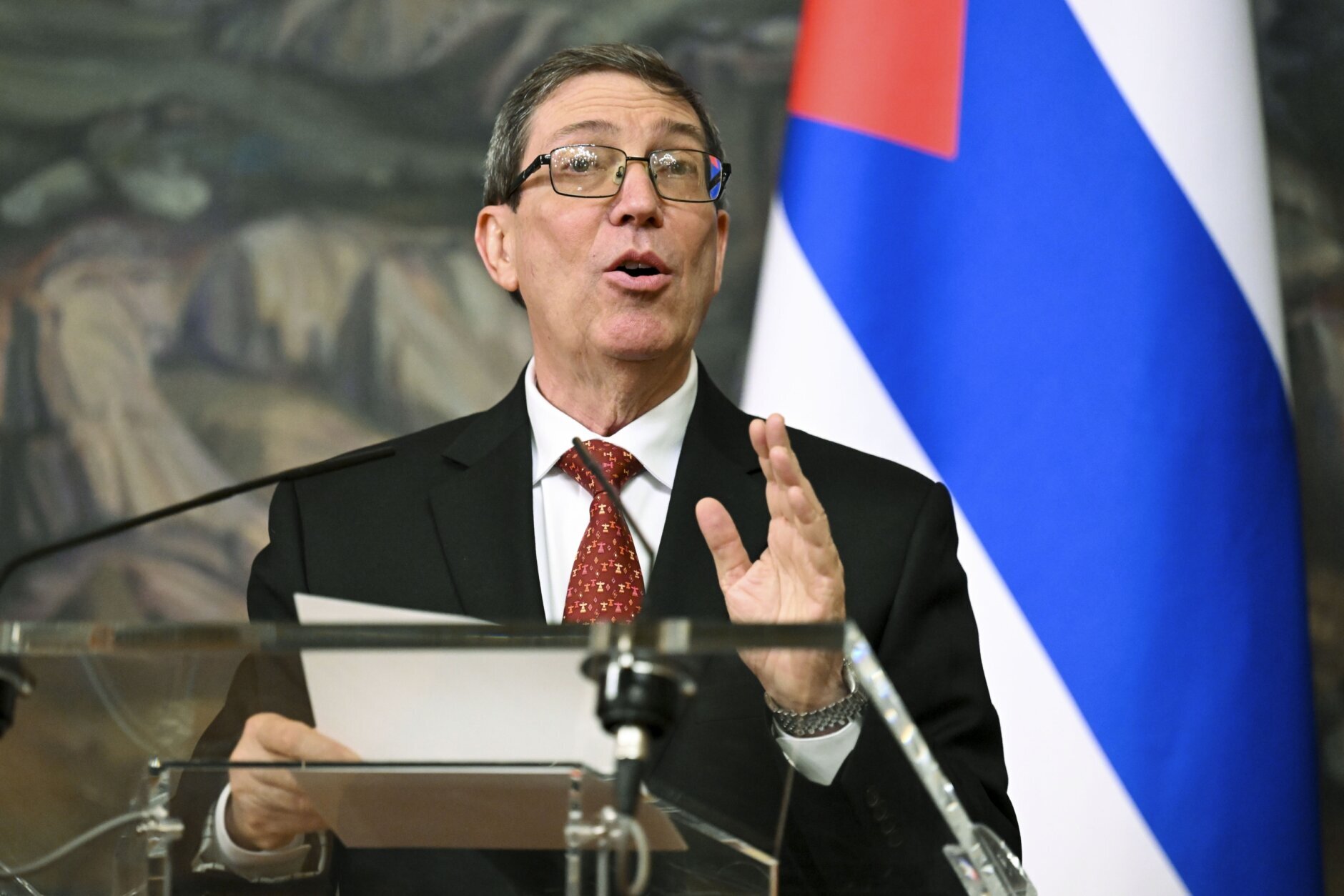
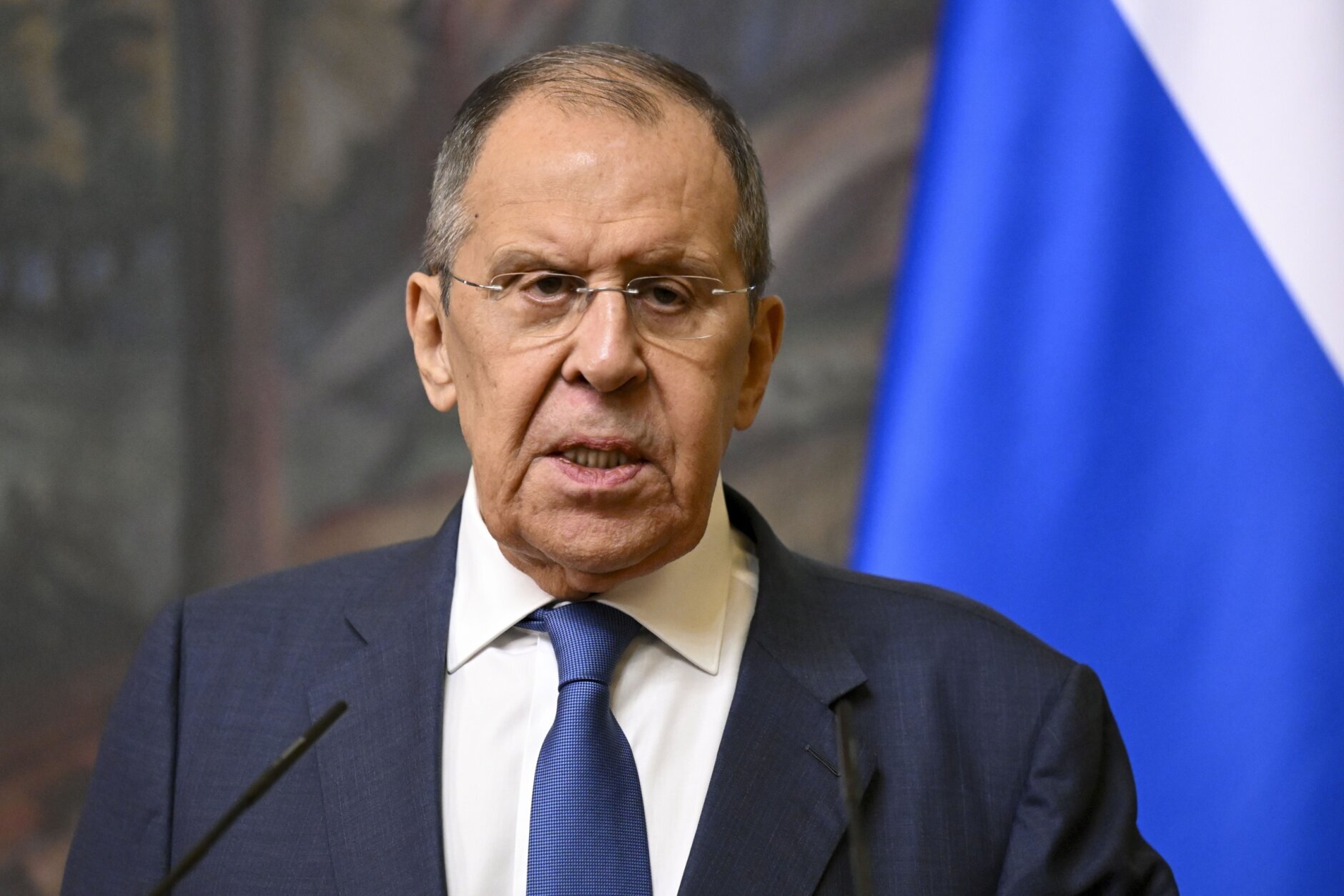
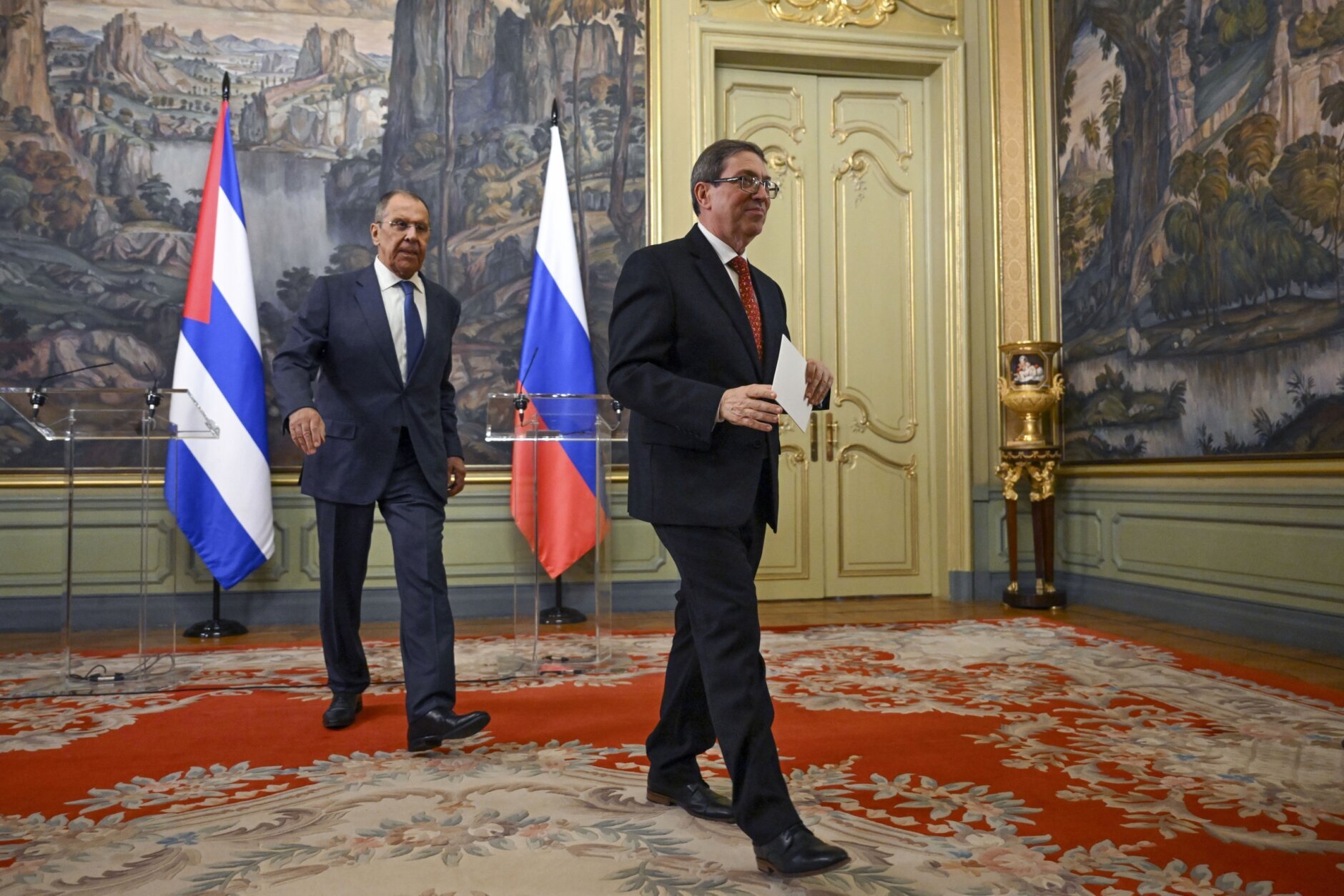
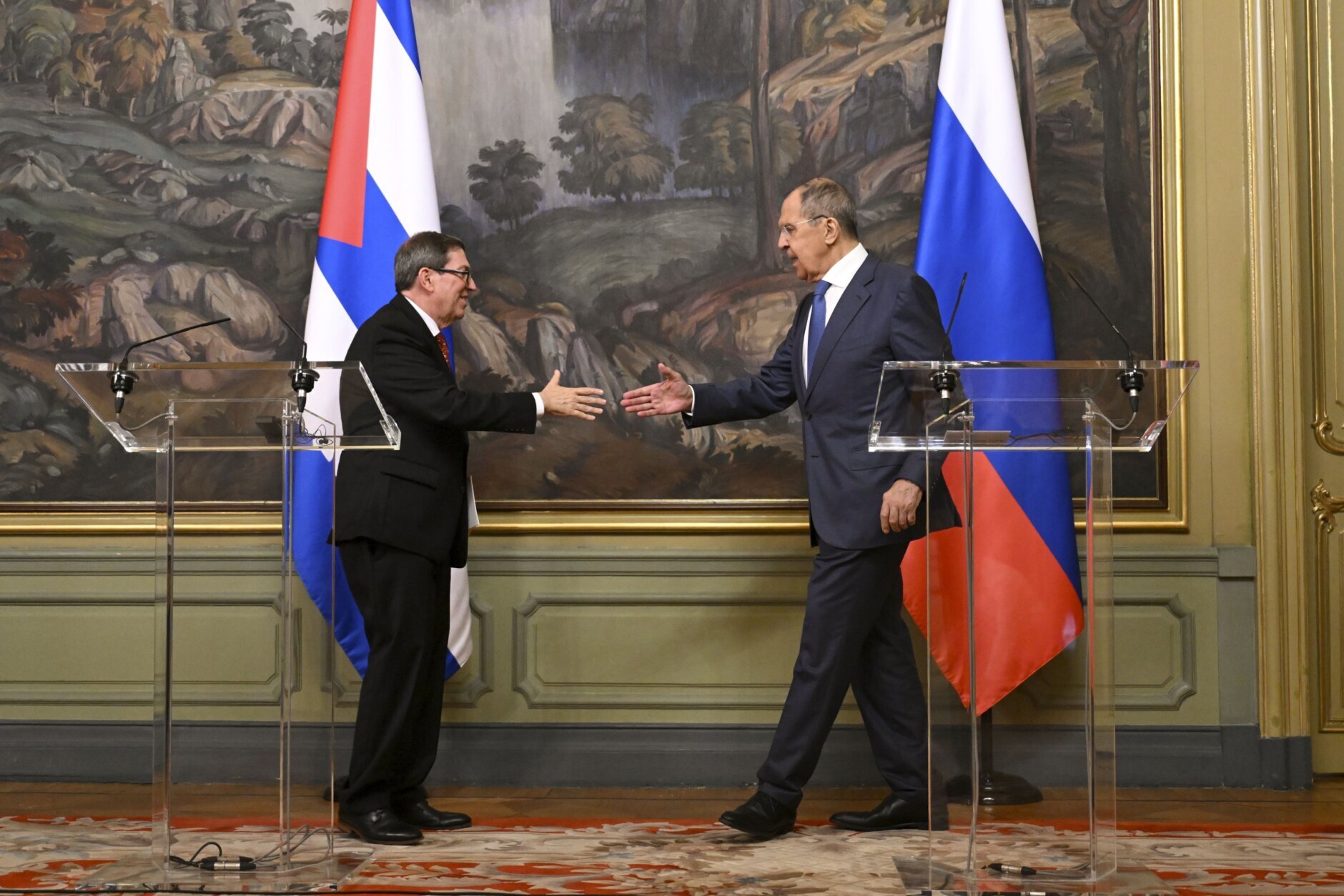

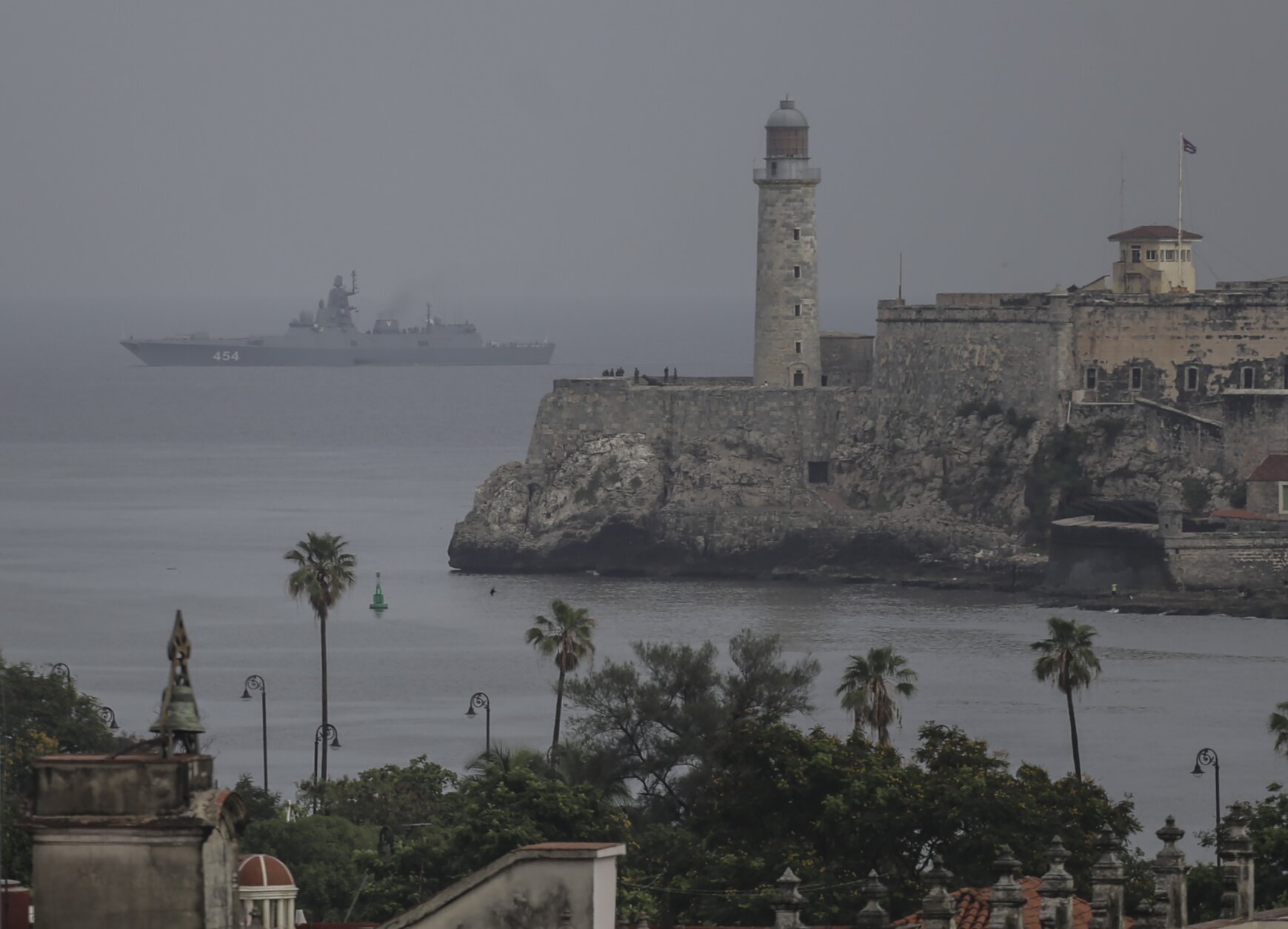
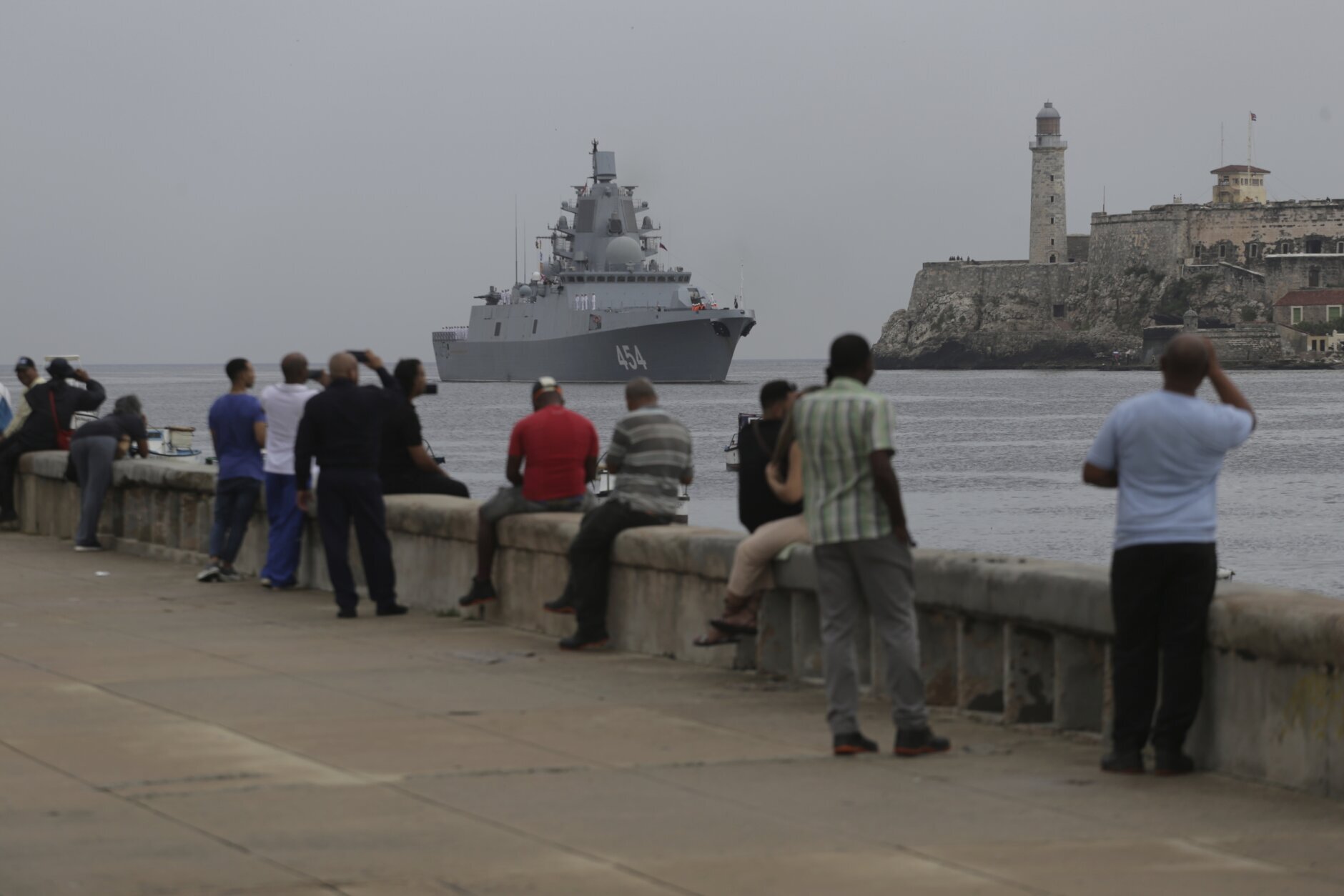



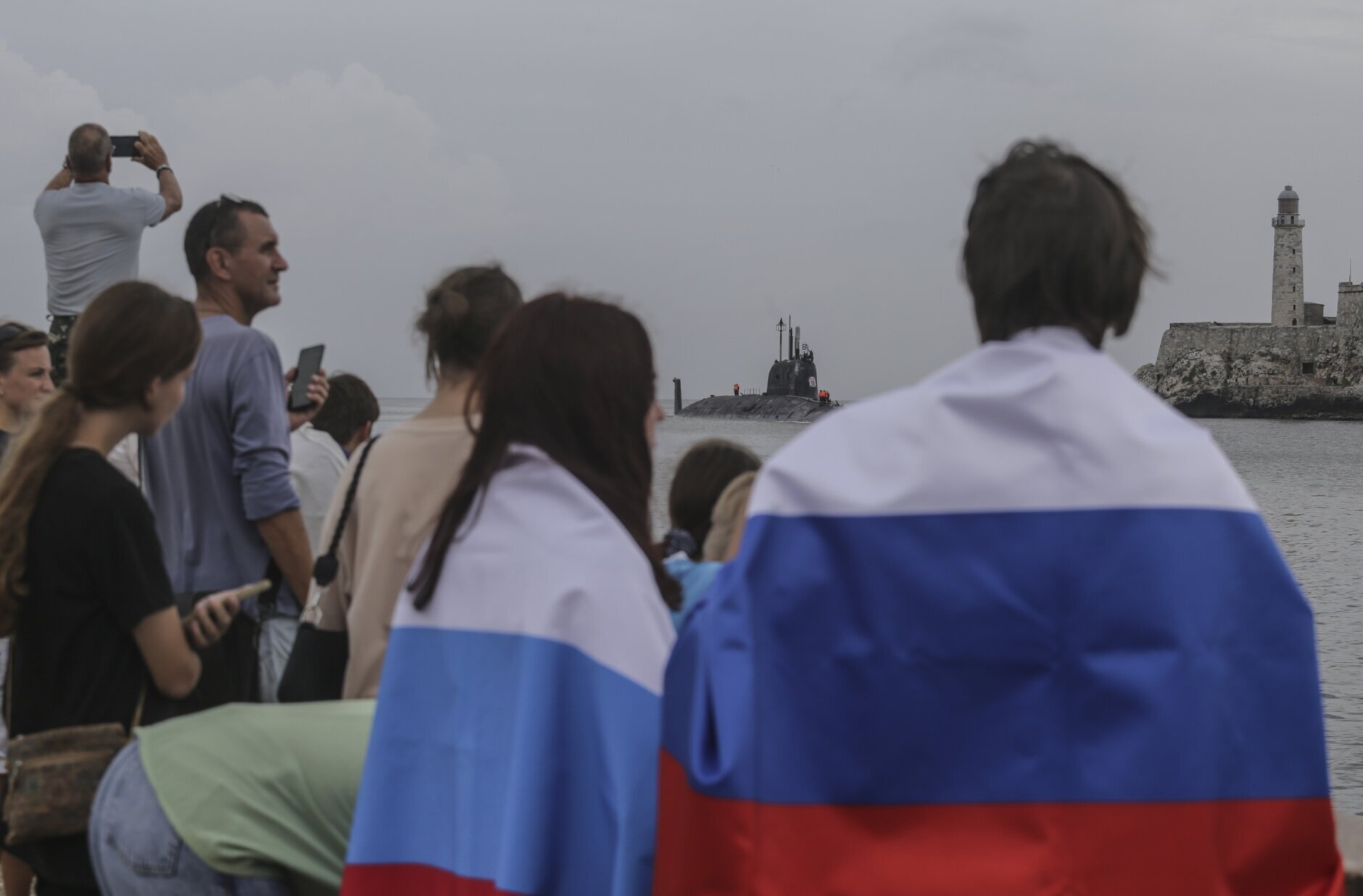
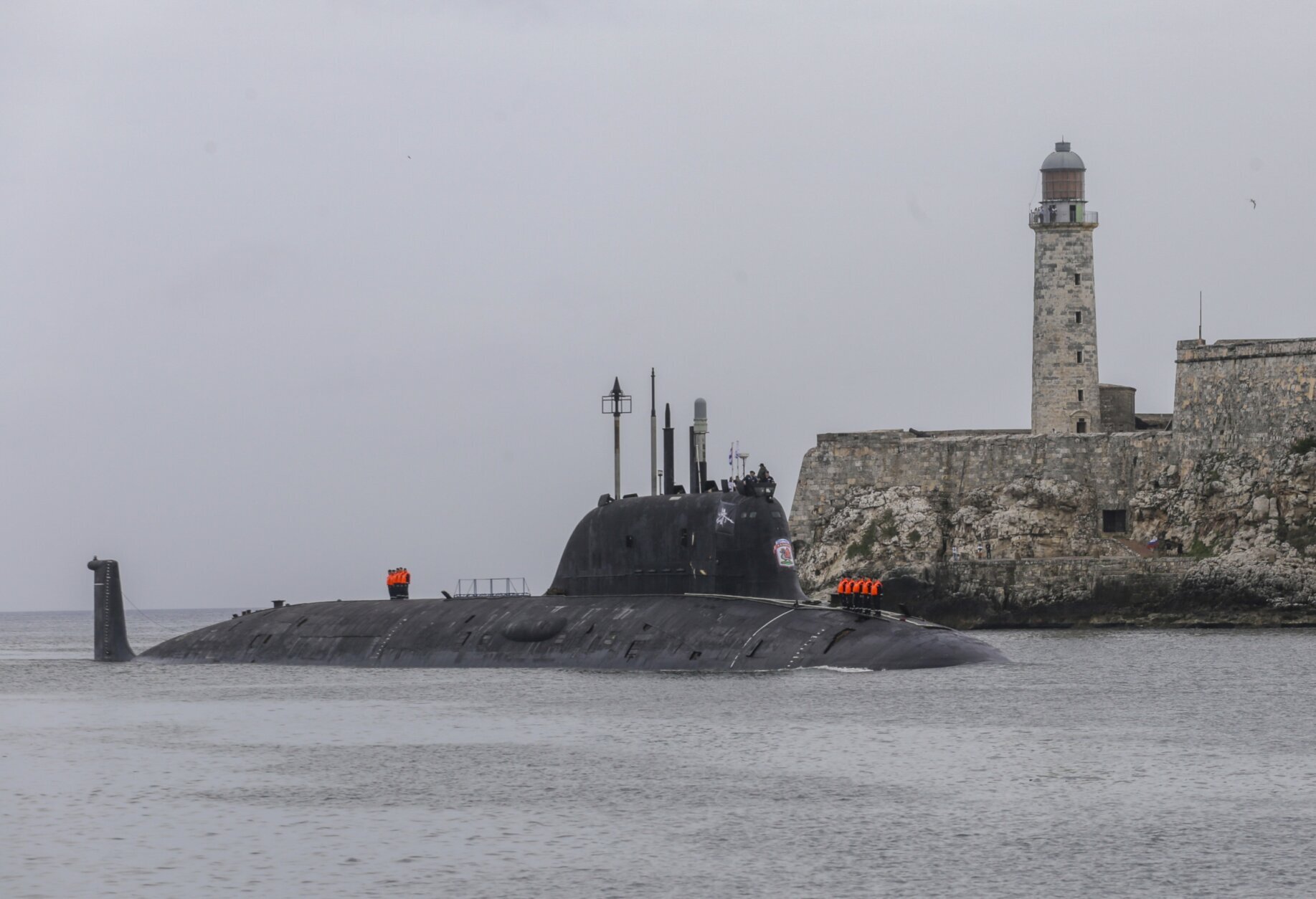
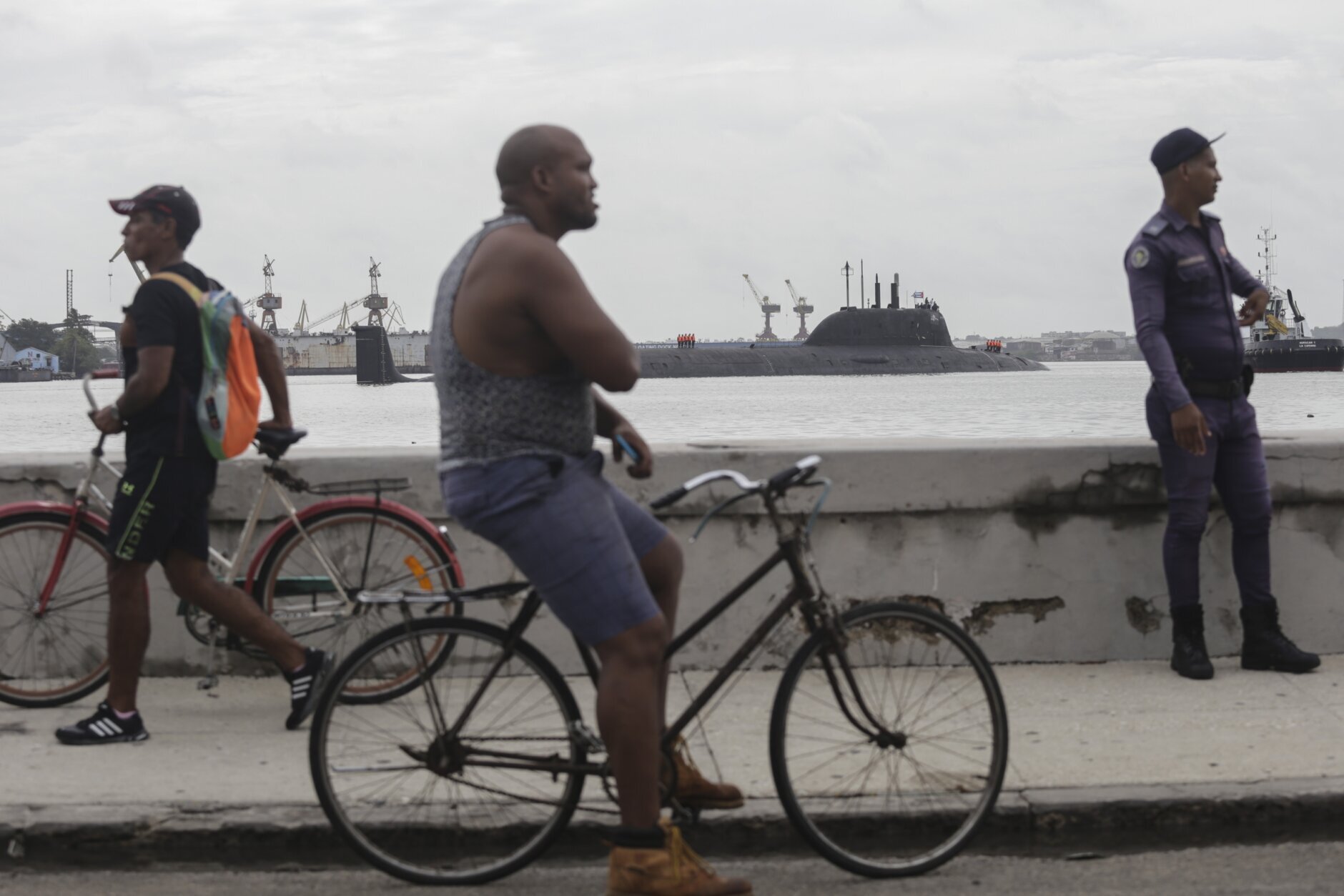
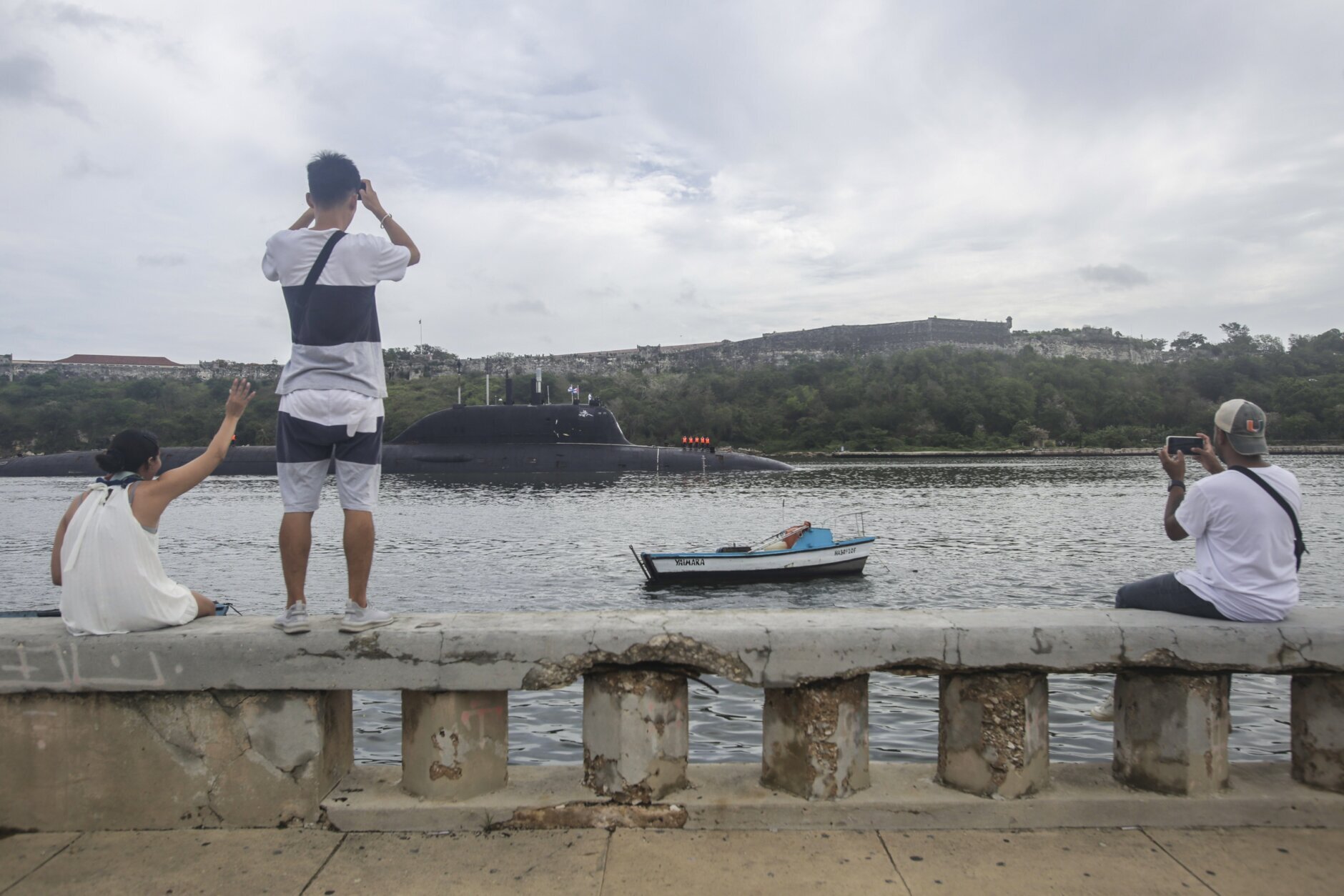
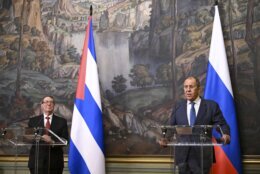
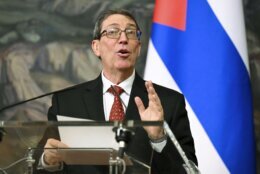

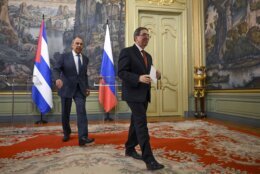
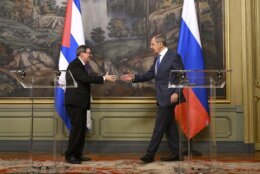
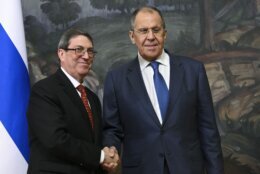
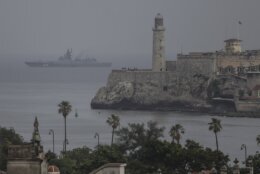

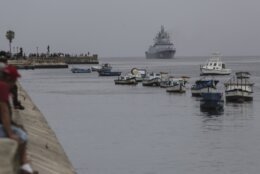
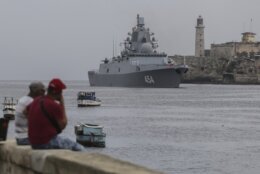
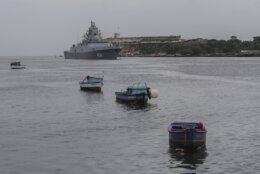
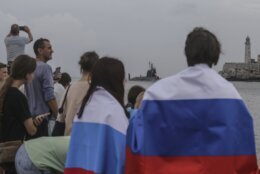

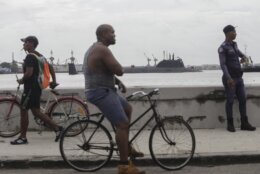


HAVANA (AP) — A fleet of Russian warships reached Cuban waters on Wednesday ahead of planned military exercises in the Caribbean that some see as a projection of strength as tensions grow over Western support for Ukraine.
The fleet, made up of a frigate, a nuclear-powered submarine, an oil tanker and a rescue tug, crossed into Havana Bay after drills in the Atlantic Ocean. The flagship frigate, adorned with the Russian and Cuban flags, was greeted by a 21-cannon salute.
Russian sailors aboard the frigate stood in military formation as they approached the island. Some Cuban residents stopped to take pictures of the arriving ships.
U.S. officials expect the Russian ships to remain in the region through the summer and possibly also stop in Venezuela.
Russia is a longtime ally of Venezuela and Cuba, and its warships and aircraft have periodically made forays into the Caribbean. But this mission comes less than two weeks after President Joe Biden authorized Ukraine to use U.S.-provided weapons to strike inside Russia to protect Kharkiv, Ukraine’s second-largest city, prompting President Vladimir Putin to suggest his military could respond with “asymmetrical steps” elsewhere in the world.
“Most of all, the warships are a reminder to Washington that it is unpleasant when an adversary meddles in your near abroad,” said Benjamin Gedan, director of the Latin America Program at the Washington-based Wilson Center think tank, referring to the Western involvement in Russia’s war in Ukraine.
“It also reminds Russia’s friends in the region, including U.S. antagonists Cuba and Venezuela, that Moscow is on their side,” he said.
Although the fleet includes a nuclear-powered submarine, a senior U.S. administration official told The Associated Press that the intelligence community has determined no vessel is carrying nuclear weapons. The official, who spoke on condition of anonymity to provide details that had not been announced publicly, said Russia’s deployments “pose no direct threat to the United States.”
Russian ships have occasionally docked in Havana since 2008, when a group of Russian vessels entered Cuban waters in what state media described as the first such visit in almost two decades. In 2015, a reconnaissance and communications ship arrived unannounced in Havana a day before the start of discussions between U.S. and Cuban officials on the reopening of diplomatic relations.
A State Department spokesperson told the AP that Russia’s port calls in Cuba are “routine naval visits,” while acknowledging its military exercises “have ratcheted up because of U.S. support to Ukraine and exercise activity in support of our NATO allies.”
On Wednesday, Russian Foreign Minister Sergey Lavrov hosted his Cuban counterpart, Bruno Rodríguez, for talks in Moscow. Speaking to reporters after the talks, Lavrov thanked the Cuban authorities for their position on Ukraine.
“From the very beginning, Havana gave an assessment of what was happening outlining the absolutely correct, true reasons for what was unfolding (in Ukraine), and what was being prepared by the West for many years,” Lavrov said.
Russian military and defense doctrine holds Latin America and the Caribbean in an important position, with the sphere seen as under U.S. influence acting as a counterweight to Washington’s activities in Europe, said Ryan Berg, director of the Americas Program at the Washington-based Center for Strategic and International Studies.
“While this is likely little more than provocation from Moscow, it sends a message about Russia’s ability to project power into the Western Hemisphere with the help of its allies, and it will certainly keep the U.S. military on high alert while they are in theater,” Berg said.
The timing of this year’s mission may serve Russia’s purposes, but it is also raising questions of whether Venezuela’s government may use it as an opportunity to shore up President Nicolás Maduro’s bid for a third term in the July 28 election.
Venezuela’s chief opposition coalition is threatening the ruling party’s decadeslong grip on power, and engineering a crisis built on simmering tensions with Guyana is among the scenarios that analysts believe Maduro’s government could use to delay or cancel the vote.
“It is almost unthinkable that Maduro will risk actually losing power,” said Evan Ellis, Latin America research professor with the U.S. Army War College.
“The most obvious alternative, consistent with Venezuelan military’s recent moves … is to fabricate an international crisis that would provide an excuse for ‘postponing’ Venezuela’s election,” he continued. “The presence of Russian warships in the vicinity would greatly add to the escalation risk of any such crisis that Maduro would fabricate, which is possibly the point.”
Venezuelan voters approved a referendum in December to claim sovereignty over the Essequibo territory, which accounts for two-thirds of Guyana and lies near big offshore oil deposits. Venezuela argues it was stolen when the border was drawn more than a century ago.
Guyana is awaiting a decision regarding Venezuela’s claim from the International Court of Justice, but Maduro’s government does not recognize its authority. The two countries squared off there on Tuesday, with Guyana strenuously objecting to a request from Venezuela for 12 more months to submit additional pleadings.
The U.S. supports Guyana in the ongoing dispute and assisted it with surveillance flights late last year when Venezuela had threatened to invade the country. Guyana’s government last month gave permission for the U.S. military to fly two powerful F/A-18F Super Hornet jets over its capital in a demonstration of close cooperation.
Guyana’s Vice President Bharrat Jagdeo on June 6 acknowledged that the Russian fleet does not represent “a direct threat.”
“Nevertheless, we’re vigilant, and we’re keeping this issue firmly in our policy radar,” Jagdeo said in a press conference.
___
Garcia Cano reported from Caracas, Venezuela. Salomon reported from Miami. Associated Press writers Bert Wilkinson in Georgetown, Guyana, and Joshua Goodman in Miami contributed to this report.
Copyright © 2024 The Associated Press. All rights reserved. This material may not be published, broadcast, written or redistributed.


